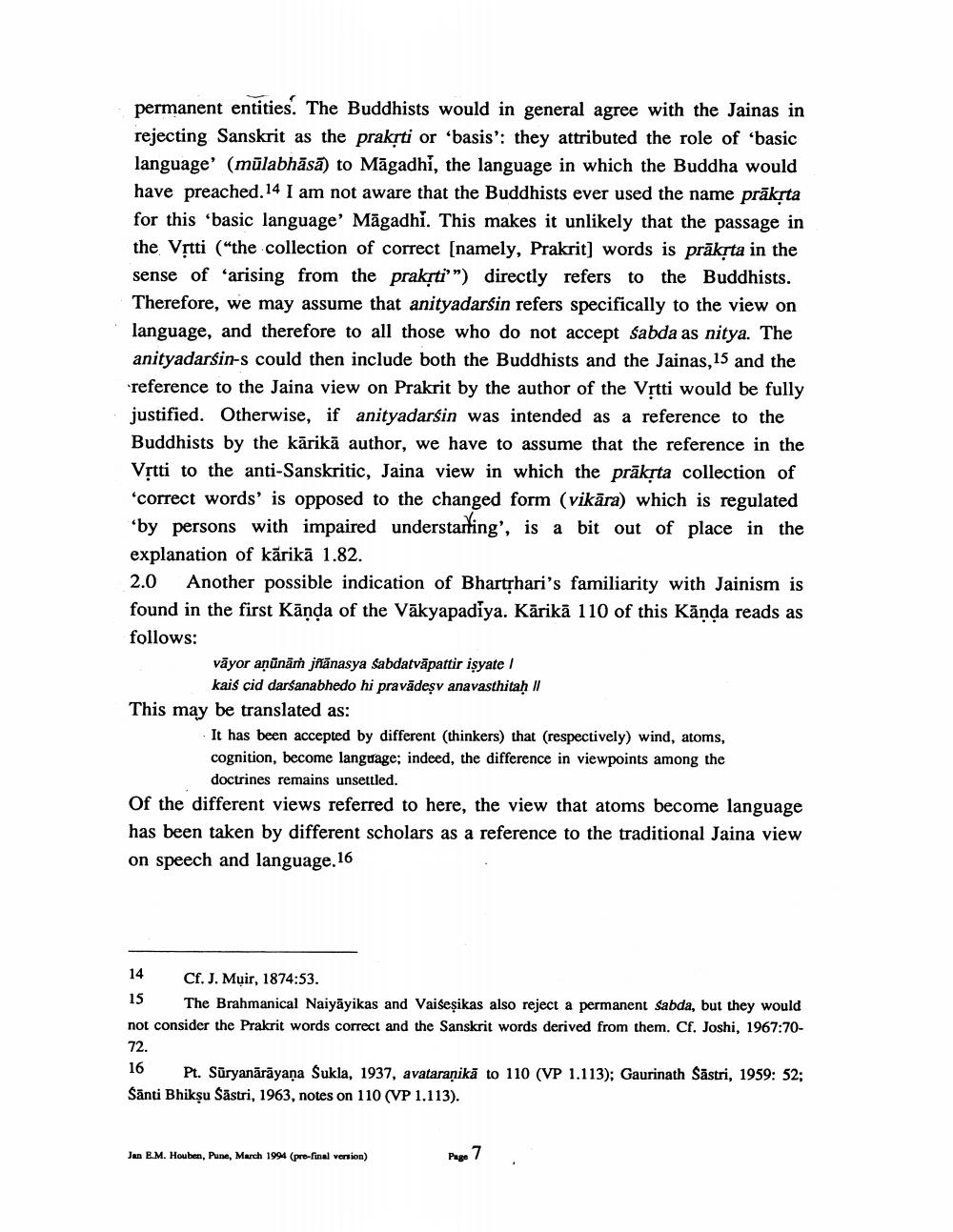Book Title: Bhartrharis Familiarity With Jainism Author(s): Jan E M Houben Publisher: Jan E M Houben View full book textPage 7
________________ permanent entities. The Buddhists would in general agree with the Jainas in rejecting Sanskrit as the prakti or 'basis': they attributed the role of basic language' (mūlabhāsā) to Māgadhi, the language in which the Buddha would have preached. 14 I am not aware that the Buddhists ever used the name prākta for this basic language' Māgadhi. This makes it unlikely that the passage in the Vrtti (“the collection of correct (namely, Prakrit] words is prāksta in the sense of arising from the prakti") directly refers to the Buddhists. Therefore, we may assume that anityadarsin refers specifically to the view on language, and therefore to all those who do not accept sabda as nitya. The anityadarsin-s could then include both the Buddhists and the Jainas, 15 and the reference to the Jaina view on Prakrit by the author of the Vịtti would be fully justified. Otherwise, if anityadarśin was intended as a reference to the Buddhists by the kārikā author, we have to assume that the reference in the Vrtti to the anti-Sanskritic, Jaina view in which the prāksta collection of 'correct words’ is opposed to the changed form (vikāra) which is regulated *by persons with impaired understarting', is a bit out of place in the explanation of kārikā 1.82. 2.0 Another possible indication of BhartȚhari's familiarity with Jainism is found in the first Kānda of the Vākyapadiya. Kārikā 110 of this Kānda reads as follows: vāyor anūnärh jhānasya sabdatvāpattir isyate kais cid darsanabhedo hi pravādeşv anavasthitaḥ Il This may be translated as: It has been accepted by different (thinkers) that (respectively) wind, atoms, cognition, become language; indeed, the difference in viewpoints among the doctrines remains unsettled. Of the different views referred to here, the view that atoms become language has been taken by different scholars as a reference to the traditional Jaina view on speech and language.16 14 Cf. J. Muir, 1874:53. The Brahmanical Naiyāyikas and Vaišeşikas also reject a permanent sabda, but they would not consider the Prakrit words correct and the Sanskrit words derived from them. Cf. Joshi, 1967:70 15 72. 16 Pt. Süryanārāyaṇa Sukla, 1937, avataranikā to 110 (VP 1.113); Gaurinath Sāstri, 1959: 52: Santi Bhikṣu Sastri, 1963, notes on 110 (VP 1.113). Jan E.M. Houben, Pune, March 1994 (pre-final version) Page 7Page Navigation
1 ... 5 6 7 8 9 10 11 12 13 14 15 16 17 18 19 20 21 22
